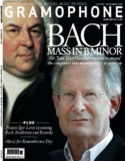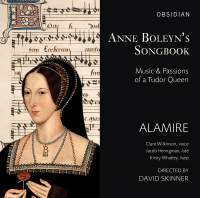Texte paru dans: / Appeared in: |
|
|
Outil de traduction (Très approximatif) |
|
|
Reviewer: David Fallows
The manuscript concerned – MS1070 in the Royal College of Music – contains 42 pieces, all but three of them motets. It is basically French, in both repertory and script. But in the middle of Loyset Compère’s motet Paranymphus salutat virginem, more or less in the middle of the manuscript, an English hand has written ‘Mistres A Bolleyne nowe thus’ (those last words being her father’s motto). This has given rise to a flurry of literature over the past 50 years: the great Edward Lowinsky suggested that the book was copied for Anne Boleyn while she was queen; David Skinner here suggests that, given the wording of her name, she was not yet queen but that it was copied between the beginning of her relationship with Henry VIII in 1526 and when her father was elevated to an earldom in 1529. Even so, the most likely copying date still seems to me the 1505-13 proposed a few years ago by Joshua Rifkin.
But it was a nice idea to follow Alamire’s earlier discs of ‘The Spy’s Choirbook’ (1/15), assuredly prepared for Henry VIII and his first wife, Catherine of Aragon, with selections from a manuscript that was apparently owned by his second wife. It is necessarily selections, because some pieces are incomplete (and some of them were already in ‘The Spy’s Choirbook’); but more than 95 minutes of music could have fitted onto two CDs. And with that decision comes the inevitable conclusion that there was no need to follow the sequence in the choirbook. So the sequence of pieces here is judged for musical effect and variety.
All three of the secular songs in the manuscript are included here, all sung eloquently by Clare Wilkinson with accompaniment by Jacob Heringman and Kirsty Whatley; and they add at the end O Deathe rock me asleep, which has nothing to do with the manuscript but has variously been associated with Anne Boleyn, although the music sounds more Elizabethan. For the rest, the motets are sturdily sung by a mixed chorus of 16 voices, with the programme – at least to my ear – focusing around three large Josquin pieces, Stabat mater, Liber generationis and Praeter rerum seriem, this last in an especially stirring performance. But the main impression is of the sheer variety of motets contained in this lovely collection. |
|
|
|
|
|
Cliquez l'un ou l'autre
bouton pour découvrir bien d'autres critiques de CD |
|




